Viva (Selle) Italia
It was a sunny afternoon in China, and the Serramenti Selle Italia team had just taken both the...
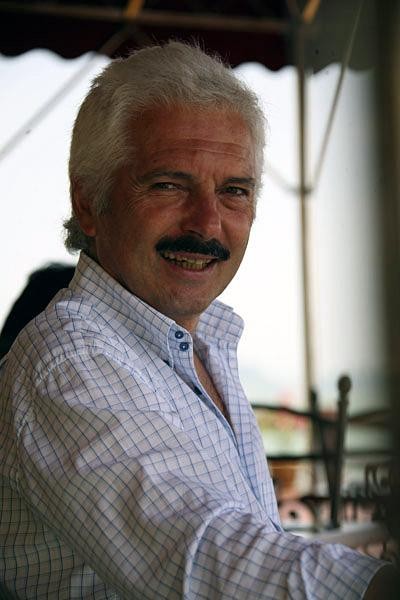
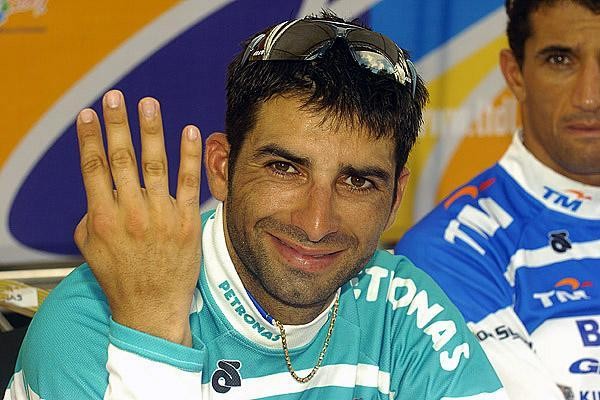
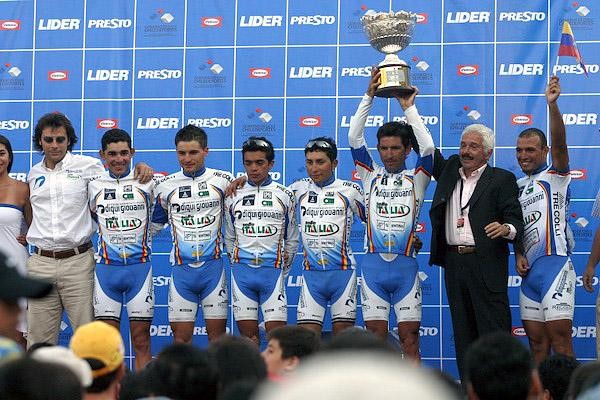
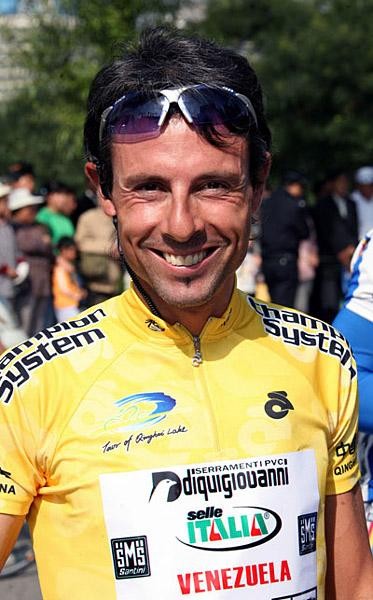

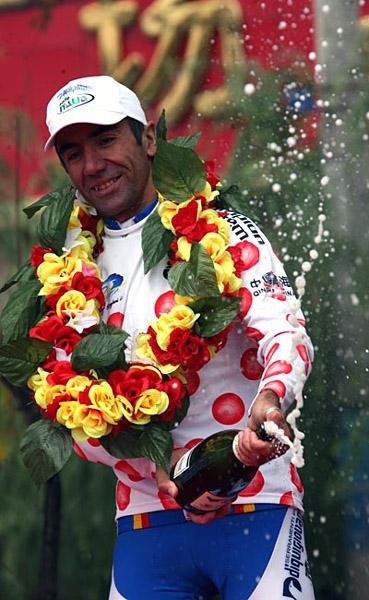

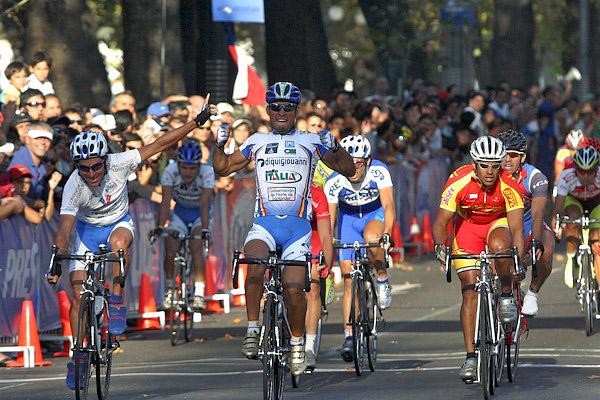


News feature: August 21, 2007
Viva (Selle) Italia
Following a very winning start to the season, Gianni Savio's Serramenti Diquigiovanni Selle Italia team were promptly excluded from the Giro d'Italia, a move that has caused some major stirs. The team has prepared to ensure its invitation for next year by signing a former Giro winner, as Cyclingnews' Steve Thomas finds out.
It was a sunny afternoon in China, and the Serramenti Selle Italia team had just taken both the overall and KOM titles in the Tour of Qinghai Lake, thanks to their veteran Italian duo of Gabrielle Misseglia and Sergio Barbero, both seasoned and well accomplished campaigners who've had their share of the limelight over the years. But that was not the team's big news of the week.
Rumours had been circulating for a while about the team signing Italian hero Gilberto Simoni; we asked team DS Giovanni Ellena what the juice was? "Yes we've signed Simoni, and we're also looking to sign at least one, maybe more riders to support him." Signing someone of Simoni's stature is not typical of the team, who are well known for finding and breeding new talent. "It was a big blow to us not getting into the Giro last year. It was very bad for the team and our sponsors, as the Giro is our biggest race of the year. Gianni (Savio) is determined not to let it happen again, which is the main reason for signing Simoni."
Taking on a star at the end of his career like Simoni and a small support entourage is definitely a good way of waving the flag to the Giro selectors, but it's a huge financial commitment too. "We should have a major increase in the teams standing and budget in the pipeline," said Ellena. "I think it could be from a Swedish company, but that cannot be confirmed yet."
This big increase could put the Professional Continental team into a different league - something that hadn't really been considered before. "I'm not really sure, who knows in the future – we will have 20 riders, so that we can split teams to ride in Europe and the rest of the world."
Get The Leadout Newsletter
The latest race content, interviews, features, reviews and expert buying guides, direct to your inbox!
For team director Gianni Savio, his riders and sponsors, being snubbed by the Giro organisers was a huge blow, and somewhat unjust. The team kicked off the year with three stage wins by three different riders at the Vuelta Tachira in Venezuela. Alberto Loddo opened the team's account on stage one, and his work was followed by wins from Jose Serpa on stage five and Walter Pedraza on stage ten.
The team continued its domination in the Tour de Langkawi, where Loddo took an astonishing five stage wins and Serpa was second overall. At the Vuelta Lider in Chile, Edgardo Simon won five stages, while Pedraza took one and Brea another. Demonstrating that the team can win in Europe as well, Alessandro Bertolini took a stage of the Coppi Bartali, and Loddo one in the Vuelta Rioja and the Vuelta Asturias. Add these victories to past successes in the Giro with Jose Rujano, the team's exclusion from the Grand Tours seems all the more odd.
The team has been one of the most enigmatic in the pro peloton for many years, largely due to the leadership and forethought of Savio. Gianni Savio is far more than just a team manager; he's a charismatic man with an unparalleled eye for finding offbeat talent and developing it. Over the years the Italian owner and director of the team has built a squad from nothing to become one of the finest high mountain squads in the world.
Savio has always had a passion for South and Central America, and the focus of his team has always been based around riders from that part of the world. He has hunted out and developed many such riders; taking them to great success in the major grand tours of Europe, as he explains, "It was about 1989 when I first became interested in the South Americans; when I saw riders like Parra and Herrera. We brought a rider called Leonardo Sierra from Venezuela to Europe, and he won big races, and it developed from there."
His middleman-like relationship was a brave initiative, and was well received by the Colombian federation. "There is a great scene and passion in the region. We worked a lot with Colombia for years. The team was registered there and we did a lot of races there with Colombian and European riders. And last year we won the Americas UCI Tour for both individual and team. For four years I worked with the Colombian federation as technical adviser – including the year when Botero won the World Championship."
The racing scene in the region is red hot, and Savio's talents are in great demand by the powers that be. "Now I have a similar role with the Venezuelan federation," Savio explained, "and the team is registered there. They have a real passion for the sport, and are really keen to push their athletes forward, so we have a long-term development plan there."
The team spends much of its time racing in the region, which suits Savio very well. "It's a beautiful area; fantastic nature, and the people are great. There is such an atmosphere and passion everywhere," he added, "and beautiful women." But of course there is the cycling to think about too. "As for the riders, I really like their attitude and style. They are so laid back, yet passionate. They work very well with the Italians, all Latinos together; a great blend."
Other European teams are also starting to take note; and squads like Relax have spent time racing South America in recent years, and have far from had things their own way. The regional season is spread throughout the year, but many of the major races take place during the European winter months, which is ideal for Savio's men.
"We spend a lot of time there, partly for sponsorship," Savio elaborated. "The American Tour is very important to us. Usually we have about four major stage races each year in South America; Vuelta Chile, Vuelta Venezuela, Vuelta Columbia and Vuelta Tachira, which is just before the European season starts - it's ideal training too."
The team has had unparalleled success in the region, and while it might not have impressed the organisers of the Giro d'Italia, it is something that has gained them quite a bit of recognition in the Americas. "Just a few months back we did a radio program in Columbia to celebrate 120 UCI team victories in five years for a Columbian registered team," Savio said proudly.
Now that the team seems likely to take on a major European based sponsor, and has upped it's firepower, the European scene will perhaps be even more important than before; and exclusion from the Giro would be unthinkable.
The importance of team's such as Selle Italia and other Pro-Conti squads cannot be underestimated. In this year's Tour de France it was the team's peers Barloworld who were the ones brave enough to set the racing on fire. Much in the way Selle Italia has done in past Giro's, the Pro-Conti teams who gain the wildcard entries feel the need to earn the honour. They're also motivated to gain stage wins in order to boost the profile of the team and gain more sponsorship.
However, with the introduction of the ProTour, the Pro-Conti teams have been at a disadvantage due to limited spots being open for invitations. Savio thinks that the small number of spots open to teams in the big races has had a negative impact on the part of the sport that develops talent. "In principle I agree with the idea," he said of the ProTour, "but not how it's run. It should be about sporting performance and not just money.
"There should not be 20 teams dominating things, maybe 12 or even 14, and the rest of the slots should be open. If it worked like football then it would be based on results – why not have 12 teams and drop 3 every year and move the best three continental teams up the following year. There are 25 pro continental teams this year, last year there were 44, which speaks for itself about the effect of [the ProTour on] things."
With the fiery blend of Italians and Latinos in his armoury, spiced with Savio's own flare, and the sense that justice needs to be done, you can expect big things of the team next year, and scores to be settled.